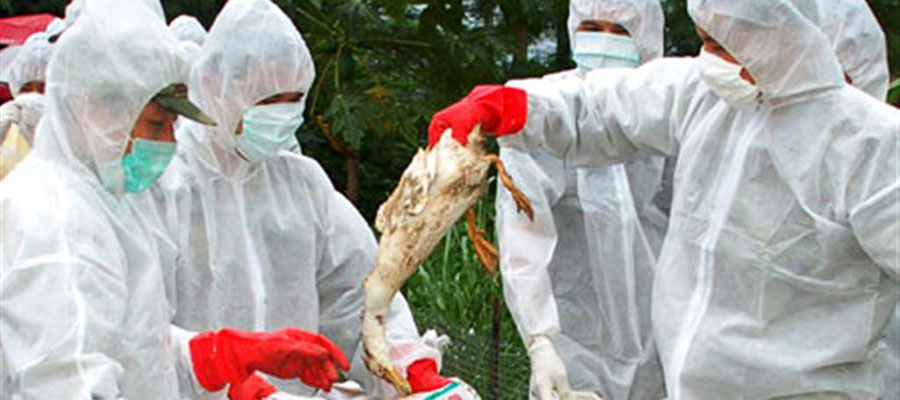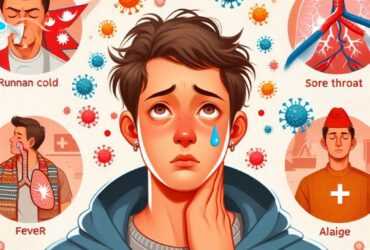Key Facts About Avian Influenza (Bird Flu) and Highly Pathogenic Avian Influenza A (H5N1) Virus
Avian influenza is flu infection in birds. The virus that causes the bird infection can change (mutate) to infect humans. Such mutation could start a deadly worldwide epidemic.
Causes
The first avian influenza virus to infect humans occurred in Hong Kong in 1997. The epidemic was linked to chickens and classified as avian influenza A (H5N1).
Human cases of avian influenza A (H5N1) have since been reported in Asia, Africa, Europe, Indonesia, Vietnam, the Pacific, and the near East. Hundreds of people have become sick with this virus. Slightly more than 60% of those who became ill have died.
The more the avian flu virus spreads, the greater the chances of a worldwide outbreak in humans. There is a tremendous concern that H5N1 poses an enormous pandemic threat.
The following people have a higher risk for developing the bird flu:
- Farmers and others who work with poultry
- Travelers visiting affected countries
- Those who touch an infected bird
- Those who eat raw or undercooked poultry meat, eggs, or blood from infected birds
Health care workers and household contacts of patients with avian influenza may also be at an increased risk of the bird flu.
The avian flu virus (H5N1) has been shown to survive in the environment for long periods of time. Infection may be spread simply by touching contaminated surfaces. Birds who were infected with this flu can continue to release the virus in their feces and saliva for as long as 10 days.
Symptoms
Symptoms of avian flu infection in humans depend on the strain of virus.
Infection with the H5N1 virus in humans causes typical flu-like symptoms, which might include:
- Cough (dry or productive)
- Diarrhea
- Difficulty breathing
- Fever greater than 100°F (38°C)
- Headache
- Malaise
- Muscle aches
- Runny nose
- Sore throat
Exams and Tests
If you think you have been exposed to avian influenza, call your health care provider before your visit. This will give the staff a chance to take proper precautions that will protect them and other patients during your office visit.
Tests to identify the avian flu exist but are not widely available. A test for diagnosing strains of bird flu in people suspected of having the virus gives preliminary results within 4 hours. Older tests took 2 to 3 days.
Your doctor might also perform the following tests:
- Auscultation (to detect abnormal breath sounds)
- Chest x-ray
- Nasopharyngeal culture
- White blood cell differential
Other tests may be done to look at the functions of your heart, kidneys, and liver.
Treatment
Different types of avian flu virus may cause different symptoms. Therefore, treatment may vary.
In general, treatment with the antiviral medication oseltamivir (Tamiflu) or zanamivir (Relenza) may make the disease less severe if you start taking the medicine within 48 hours after your symptoms start.
Oseltamivir may also be prescribed for persons who live in the same house as those diagnosed with avian flu.
The virus that causes human avian flu appears to be resistant to the antiviral medicines amantadine and rimantadine. Therefore these medications should not be used if an H5N1 outbreak occurs.
People with severe infection may need to be placed on a breathing machine. Experts recommend that persons diagnosed with avian flu be put in isolation.
Doctors recommend that people get an influenza (flu) shot to reduce the chance of an avian flu virus mixing with a human flu virus, which would create a new virus that may easily spread.
The U.S. Food and Drug Administration has approved a vaccine to protect humans from the avian flu. Experts say the vaccine could be used if the current H5N1 virus starts spreading between people.
Outlook (Prognosis)
The outlook depends on the severity of infection and the type of avian influenza virus that caused it. Death is possible.
Possible Complications
- Acute respiratory distress
- Organ failure
- Pneumonia
- Sepsis
When to Contact a Medical Professional
Call your health care provider if you develop flu-like symptoms within 10 days of handling infected birds or traveling to an area with a known avian flu outbreak.
Prevention
At this time, the U.S. Centers for Disease Control and Prevention (CDC) has no recommendations against travel to the countries affected by H5N1 .
However, travelers should avoid visits to live-bird markets in areas with an avian flu outbreak. People who work with birds who might be infected should use protective clothing and special breathing masks. Avoiding undercooked or uncooked meat reduces the risk of exposure to avian flu and other foodborne diseases.
Current information regarding avian flu is available at www.cdc.gov/flu/avian/outbreaks/current.htm.
Alternative Names
Bird flu; H5N1






